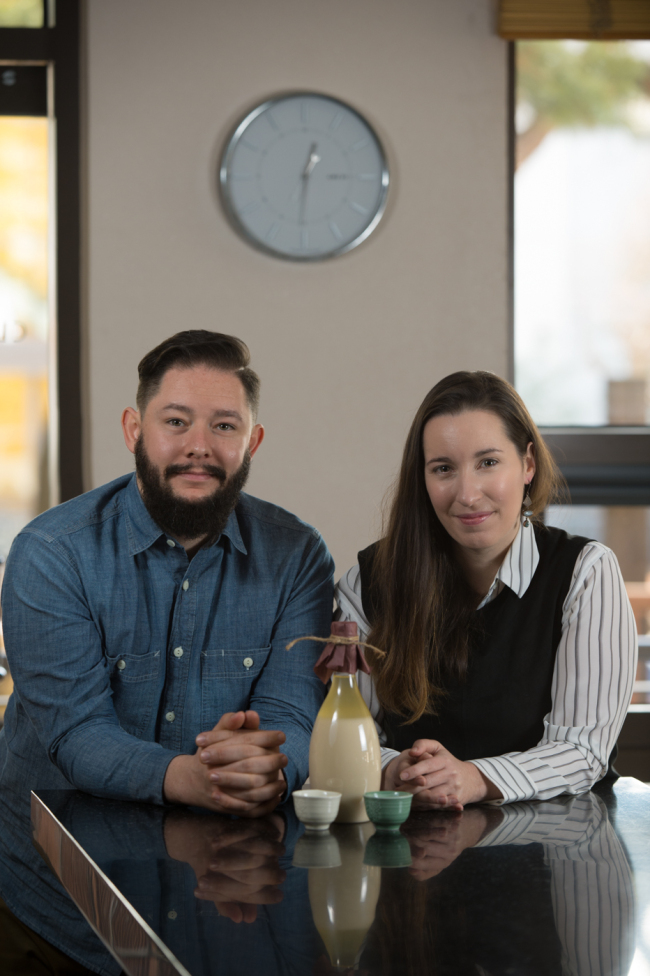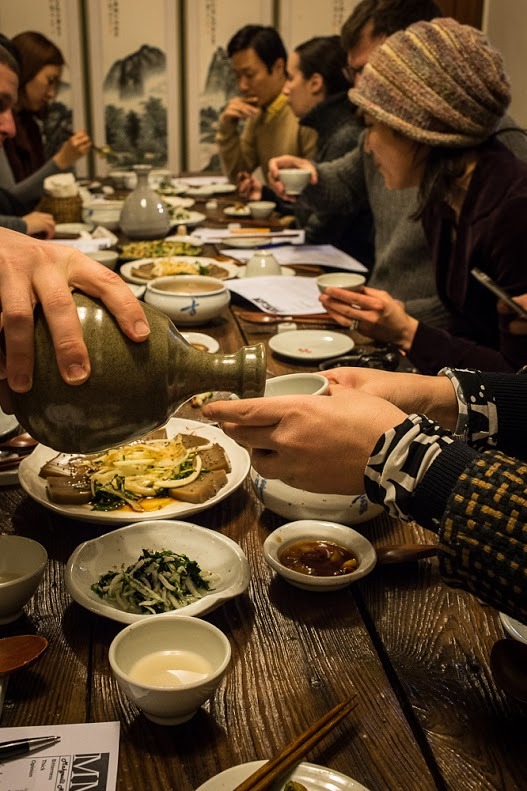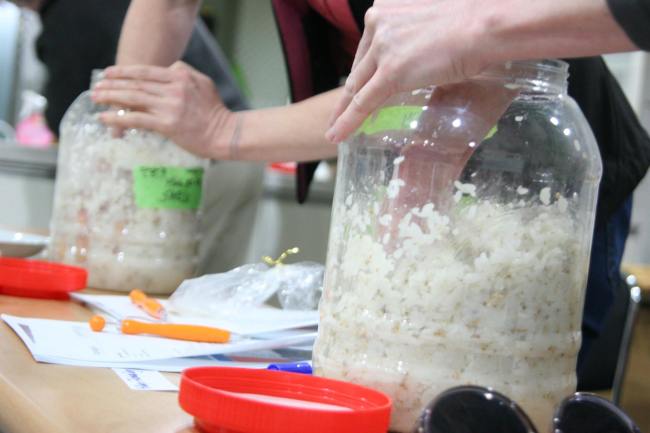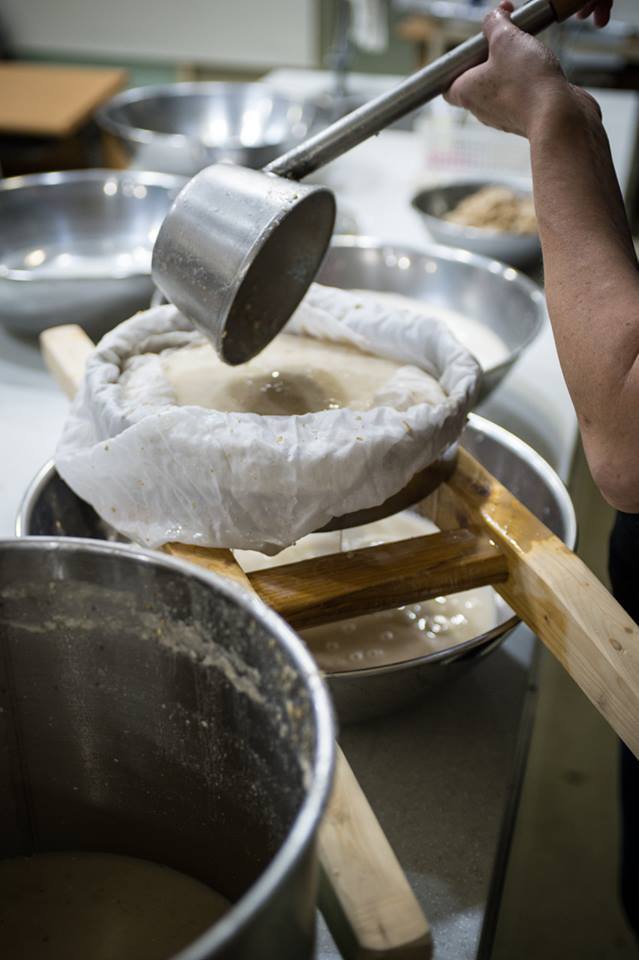Making more than makgeolli
Two expats on mission to teach the world about traditional Korean alcohol
By Anita MckayPublished : July 19, 2017 - 18:25
Julia Mellor’s first experience with makgeolli was, by her own admission, terrible. The cheap green bottle she had purchased from a local convenience store here left such a bad aftertaste that she gave up on Korean alcohol there and then.
So it’s surprising that now, almost 10 years after her first and what she thought would be her final sip, she finds herself at the helm of a company dedicated to educating and spreading awareness of traditional Korean alcohol.
So it’s surprising that now, almost 10 years after her first and what she thought would be her final sip, she finds herself at the helm of a company dedicated to educating and spreading awareness of traditional Korean alcohol.

“Many people will drink easily accessible Korean alcohol and it will give you a raging hangover the next day or you’ll feel terrible and you’ll think ‘never again,’” Mellor, director and co-founder of The Sool Company, said.
“When I discovered there was a whole range of different kinds (of makgeolli) that I previously didn’t know were accessible, that sparked my interest.”
The Australian expat set out to learn more about makgeolli, but found little information available in English. Spurred by her curiosity she, along with a friend, organized a group in 2012 to discover what traditional Korean alcohol had to offer beyond the green bottle.
Over the next five years Mellor, along with The Sool Company Managing Partner and co-Founder Daniel McLaughlin, explored the history and science that goes into making top-shelf traditional brews.
From learning the language to studying brewing techniques and the industry at various academies, Mellor and McLaughlin have now established themselves as authorities in the industry here and want to share their knowledge with the English-speaking world.
“In terms of online (English) resources provided by the Korean government or culture institutes, it’s still not much better even now,” said McLaughlin, who is from Scotland.
When he decided to learn more about brewing makgeolli four years ago, his research led him to lessons that were filled with more gimmicks than substance.
“I saw opportunities to do it and you can dress up in a hanbok, a very touristic type of thing, and have your photo taken, but that doesn’t really gel with me well,” he said. “I wanted to know more about it, not just, ‘This is rice wine. This is from Korea.’”

Non-Korean speakers here looking to gain an insight into traditional alcohol will find information scarce. The Sool Company seeks to fill this void and educate people through tastings, brewing classes and tours so that consumers can make quality choices when purchasing their bottles.
However, a big challenge the company faces is convincing people that top-shelf Korean alcohol exists. For many new to the country, their first foray into domestic alcohol usually begins, and sometimes ends, at a convenience store, which McLaughlin said can leave people with a bad impression.
Over the past 50 years makgeolli has gone from Korea’s most popular alcoholic drink to being eclipsed by beer and soju, both of which have undergone recent rebirths. McLaughlin sees makgeolli’s demise as an issue of accessibility.
“The market here is heavily skewed in favor of large companies, large breweries that produce cheaper products. The really, really great stuff is generally accessible, particularly in Seoul in most parts of the city, but its knowing where those places are and how to access them is a challenge,” he said.

Finding good quality drinks, however, isn’t as difficult as it used to be. Mellor notes that there is a small artisan makgeolli culture here in the bar scene, with many serving finer bottles.
The original techniques and style they use require better quality ingredients and longer fermentations which, when it trickles down to the customer, is more expensive. This, however, Mellor said, doesn’t affect international consumers as much as it does Koreans.
While Korean consumers have a long connection to makgeoilli and soju as being low quality and cheap, foreigners don’t have that cultural bias. Instead of introducing them to the cheap traditional alcohol, Mellor and McLaughlin want to introduce those new to Korean alcohol to the different types of alcohol they believe deserve more commercial attention globally.
“There are sojus that stand up to the best whiskeys, best vodkas and best gins. They are seriously good quality. But there’s no infrastructure in order to get them to a playing field where they could prosper. We see a lot of potential, but it’s a matter of connecting the consumer,” Mellor said.

With the knowledge they gained from studying at Susubori Academy, the Korean Traditional Alcohol Institute, the Korean Homebrewing Institute and Makgeolli School, the duo felt they could open a brewery here and succeed. However, they place higher priority on cultivating a reliable, informative source that goes beyond the tired definition of “a traditional rice drink.”
“We see a heavier importance and a heavier responsibility to communicate what we’ve learned to educate a wider consumer base, because there is still such a dearth of information,” Mellor said.
“Many people think soju is a green bottle and that’s it, but it’s not. There’s a whole world beyond Chamisul and all the other smaller green bottles.”
By Anita McKay (anita@heraldcorp.com)


















![[Today’s K-pop] Treasure to publish magazine for debut anniversary](http://res.heraldm.com/phpwas/restmb_idxmake.php?idx=642&simg=/content/image/2024/07/26/20240726050551_0.jpg&u=)